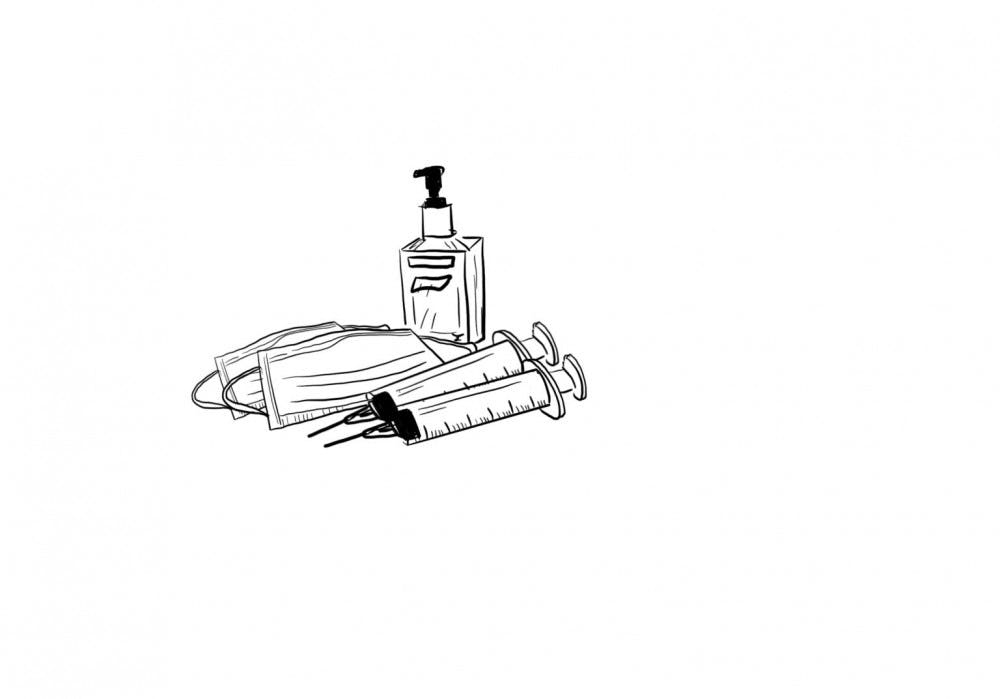Rhode Island Gov. Dan McKee announced March 18 that residents age 16 and older will become eligible for COVID-19 vaccination April 19.
The announcement, which would allow the state to meet President Joe Biden’s goal of making all adults eligible for the vaccine by May 1, is a significant shift in the Rhode Island Department of Health’s previous timeline for vaccinations, which predicted that all adults would become eligible in June.
RIDOH Spokesperson Joseph Wendelken told The Herald that people aged 16 to 39 will not be able to begin registering for appointments on the state’s website until they become eligible April 19.
“It doesn’t mean that (this group is) gonna get vaccinated on the 19th or the 20th,” Wendelken said. “It’ll mean that they will be able to start registering. We’re usually booking two weeks out.” People in the youngest age bracket will likely start to get vaccinated in early May.
Demand is one limiting factor on how soon young people can get appointments after April 19, he added, “but there will be vaccines for every person who wants to get vaccinated in Rhode Island.”
The two most important variables for vaccine rollout are how many vaccines are shipped to the state and how many people sign up to get it, Wendelken said. More vaccine supply and lower uptake could accelerate distribution and make it easier to get an appointment.
RIDOH will send out announcements about how to sign up, he added, but “ultimately people will be able to go to vaccinateri.org to make an appointment.”
People can also sign up to be vaccinated at pharmacies like CVS, Walgreens, Stop & Shop and Walmart, he said. There are also clinics designated specifically for harder-hit communities — Providence and Pawtucket recently expanded vaccine eligibility to include residents ages 18 and older of ZIP codes hit particularly hard by the pandemic. .
Around 4,000 appointments are released all at once on Tuesday mornings and Friday afternoons, Wendelken said. As supply increases, the number of available appointments will increase as well. A pre-registration system that will ask for personal information and notify individuals if there is an open appointment will become available soon and should cut down traffic on the site, he added.
Another factor in the availability of vaccine appointments is the proportion of first and second doses that are being scheduled, according to Wendelken. For example, the state is currently administering a large number of second doses, which reduces the number of first dose appointments available, he explained.
There are currently three operating vaccine clinics run by the state in Middletown, at the Dunkin’ Donuts center in downtown Providence and in Cranston, Wendelken said.
Two more vaccination clinics will be opening in the coming weeks as supply increases, including one in Woonsocket and one in West Kingston, he added.
Executive Vice President for Planning and Policy Russell Carey ’91 MA ’06 said that the University is “strongly encouraging” community members to receive the vaccine, The Herald previously reported.
Additionally, Carey does not expect the University to host a vaccine site by April. The University expects COVID-19 guidelines to remain mostly the same over the summer semester, but hopes to see “incremental improvements” this fall.
Community members who submit a vaccination record and are asymptomatic are exempted from quarantining after exposure to the COVID-19 virus, he added.
Gabe Merkel ’23 said that when he found out that the eligibility timeline had moved up to April 19, he was “just really happy, but I do know it will be a challenge to get (an appointment) right when it opens up.”
“What I’m hoping about the vaccine as a whole is that Brown will play some role in facilitating (distribution) for students this summer,” Merkel said. He hopes that states will give colleges vaccines to distribute to allow campuses to “open more fully.”
Merkel said that providing incentives for getting the vaccine — such as allowing larger gatherings on the University level once students have been vaccinated — could be helpful in encouraging takeup when the vaccine becomes available to all populations.
Benjamin Hokenson ’24 said that when the news broke he “was pretty excited because I thought that it meant that the future of people at Brown being vaccinated is pretty close.”
“I’m most excited for the possibility or potential of clubs and classes being in person, and I’m also happy that we’re going to be able to keep our community safer,” he said.
Paige Martin ’22 said she was "really excited because I’ve been waiting for so long.”
Martin said that getting an appointment is still uncertain and that she is slightly worried about the process of signing up, but added that the vaccine is a big deal for her because she has strictly adhered to Centers for Disease Control and Prevention guidelines on COVID-19 throughout the pandemic.
“I’ve taken COVID super seriously basically since lockdown,” Martin said.
She said that she decided to study remotely this fall because of the pandemic and saw only immediate family until her return to campus this year. Additionally, Martin said that being a public health concentrator adds to her concern and feeling of responsibility.
“This pandemic is the epitome of everything I’ve learned about. Epidemics, pandemics, widespread illness and the effects of really disproportionate health outcomes — and COVID has really impacted people disproportionately, specifically minority groups,” Martin said. “As an African American, I felt like it was important for me to be safe and keep my community safe.”

ADVERTISEMENT




